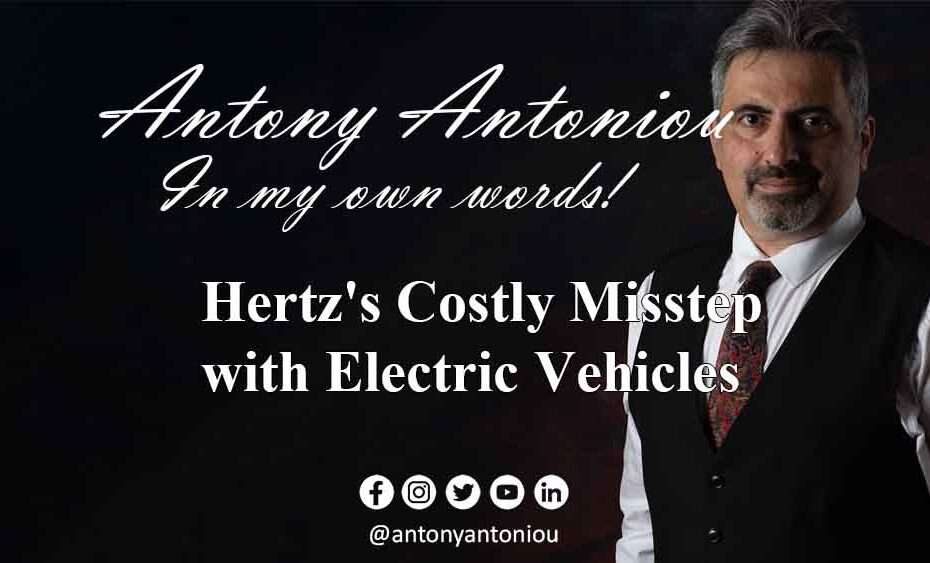Hertz’s Costly Misstep with Electric Vehicles
Introduction
Car rental giant Hertz recently took a $45 million loss after an attempt to go green by buying 20,000 electric vehicles backfired. The company had hoped to position itself as an environmentally conscious option for renters, but failed to consider customers’ practical needs and preferences. This case illustrates some of the ongoing challenges with wide-scale EV adoption.
The Motivation
In 2020, Hertz set an ambitious goal to electrify one-quarter of its fleet, amounting to 20,000 vehicles. This formed part of a wider corporate push towards more climate-friendly practices. However, while the motivation was commendable in theory, there were clearly flaws in the strategy and execution.
The Problem
Ultimately, the reason this initiative failed comes down to customer demand, or lack thereof. Most Hertz renters pick the company because they need to travel moderate to long distances. This could be for business trips, touring holidays, or other reasons. The range limitations and long charging times associated with EVs make them poorly suited to these use cases currently.
Renters expect to be able to quickly refuel and be on their way. But finding an available charger, then having to wait potentially hours for an adequate charge, is simply not feasible or appealing when they are trying to make the most of limited rental time.
The Financial Loss
As a result of insufficient demand, Hertz has been forced to write off $45 million on the underutilized EVs. On top of the high original sticker price, maintenance costs for EVs are also more significant than traditional internal combustion engine vehicles.
Of course, Hertz deserves credit for making an effort towards sustainability, even if the business case did not stack up on this occasion. Nonetheless, they failed to fully consider the practical impediments from a customer standpoint.
Wider Adoption Challenges
This situation speaks to ongoing teething issues with EV adoption more broadly. There is still anxiety among some drivers around range, charging infrastructure availability, battery lifespan and other factors. Brands like Hertz need to lead public education efforts to overcome these, rather than putting the cart before the horse.
There also remain large upfront cost barriers to EV ownership for many. Hertz may have thought rentals could serve as a ‘gateway’, sparking interest that converts to future sales. But a rental experience is often not reflective of actual ownership, so this was overly optimistic.
Government Quotas
Hertz’s losses come against the backdrop of looming government zero-emission vehicle quotas internationally. By 2026, carmakers in Europe will need to ensure a quarter of new sales are electric. And from 2035, all new cars sold in the EU must be zero emissions.
Proponents argue these mandates will force down EV costs through economies of scale. However, critics see them as an unwanted nanny-state incursion on personal choice. There are also doubts over whether charging infrastructure can keep pace.
If targets are adhered to rigidly without flexibility, they risk leaving many unable to afford private transport in the long term. This takes freedom of mobility away from the average citizen. Wealthy elites with the means to own new EVs will not face the same restrictions.
Rethinking Green Credentials
So while Hertz’s initiatives came from an admirable place of wanting to reduce environmental impact, the execution was clearly misguided. This is emblematic of a wider tendency for ‘green posturing’ from brands, without substantiating real-world benefits.
In fact, there is a distinct irony that EVs are still so reliant on unethically-sourced battery minerals, often using child labour in unsafe conditions. Each new vehicle sold intensifies demand for scarce cobalt and lithium reserves. This troubling supply chain dynamic damages the industry’s ecological credentials.
Conclusion
– Hertz attempted to go green by buying 20,000 EVs, but failed to adequately consider customer needs and preferences
– Renters expect to travel moderate-long distances, but range limitations and charging logistics currently make EVs ill-suited
– Initiative backfired spectacularly, costing Hertz $45 million in losses from low utilization rates
– Points to ongoing adoption challenges around factors like range anxiety and infrastructure gaps
– Government EV quotas looming, but critics argue this removes choice and affordability
– Supply chain ethics issues persist around unsafe mining of battery minerals
– Brands must move past superficial green marketing to substantiate real benefits
– More public education needed on EVs, alongside flexibility and openness on path to sustainability
– Heavy-handed policies that restrict options likely counterproductive
Ultimately, the Hertz case offers some salient lessons. Customer sentiment still indicates EVs have limitations that automakers and governments have been slow to acknowledge. Quotas and targets are meaningless without adequate public buy-in. And superficial green marketing ploys can quickly backfire and cost companies dearly.
More openness, education and choice is needed on the road towards sustainable transport. The poor optics of dying children mining EV battery materials also requires urgent attention. But heavy-handed policies that take options away from citizens do more harm than good.


let them enjoy the loss… well done Hertz.
let them enjoy the loss… well done Hertz.